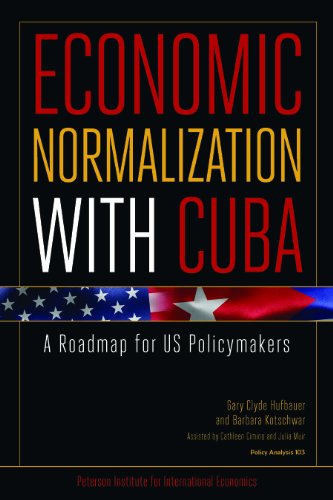Back Channel to Cuba: The Hidden History of Negotiations between Washington and Havana

For more than 50 years the United States has attempted to destabilize and isolate the Castro regime in Cuba with the use of trade and financial sanctions, a policy that has fallen short of its objective. In this Policy Analysis, Gary Clyde Hufbauer and Barbara Kotschwar suggest that the sands of time may accomplish what economic pressure did not. Raúl Castro, president of Cuba since 2008, plans to step down at the end of 2018, implying a new regime in five years. Various forces are starting to emerge favoring economic normalization if Cuba appears ready to change its policies as well as its leadership. The authors caution, however, that a unilateral dismantling of US sanctions without insuring that proper institutions are in place in Cuba could squander a golden opportunity for US companies. They argue that a new US-Cuba relationship must entail a lifting of Cuba's barriers to trade and investment, liberalization of its economy, and the adoption of democratic institutions. They offer a roadmap for a future US-Cuba rapprochement.
| Country | USA |
| Binding | Kindle Edition |
| EISBN | 9780881326833 |
| Format | Kindle eBook |
| Label | Peterson Institute for International Economics |
| Manufacturer | Peterson Institute for International Economics |
| NumberOfPages | 130 |
| PublicationDate | 2014-05-05 |
| Publisher | Peterson Institute for International Economics |
| ReleaseDate | 2014-05-05 |
| Studio | Peterson Institute for International Economics |